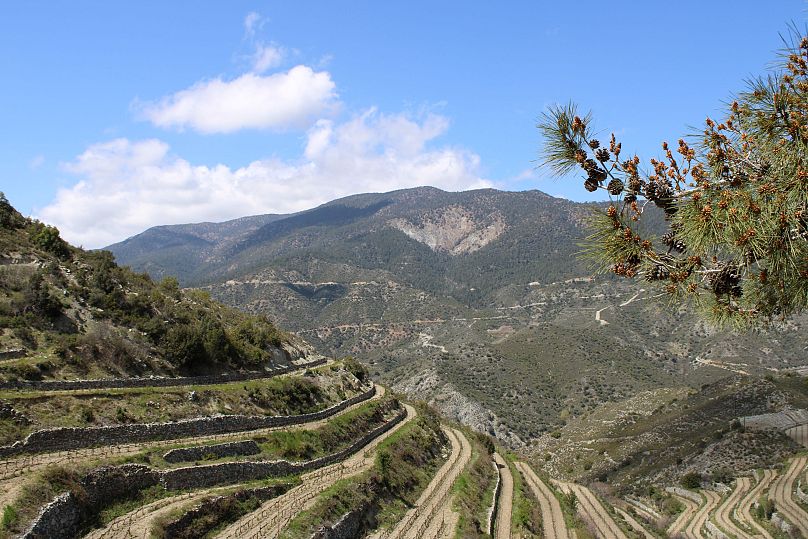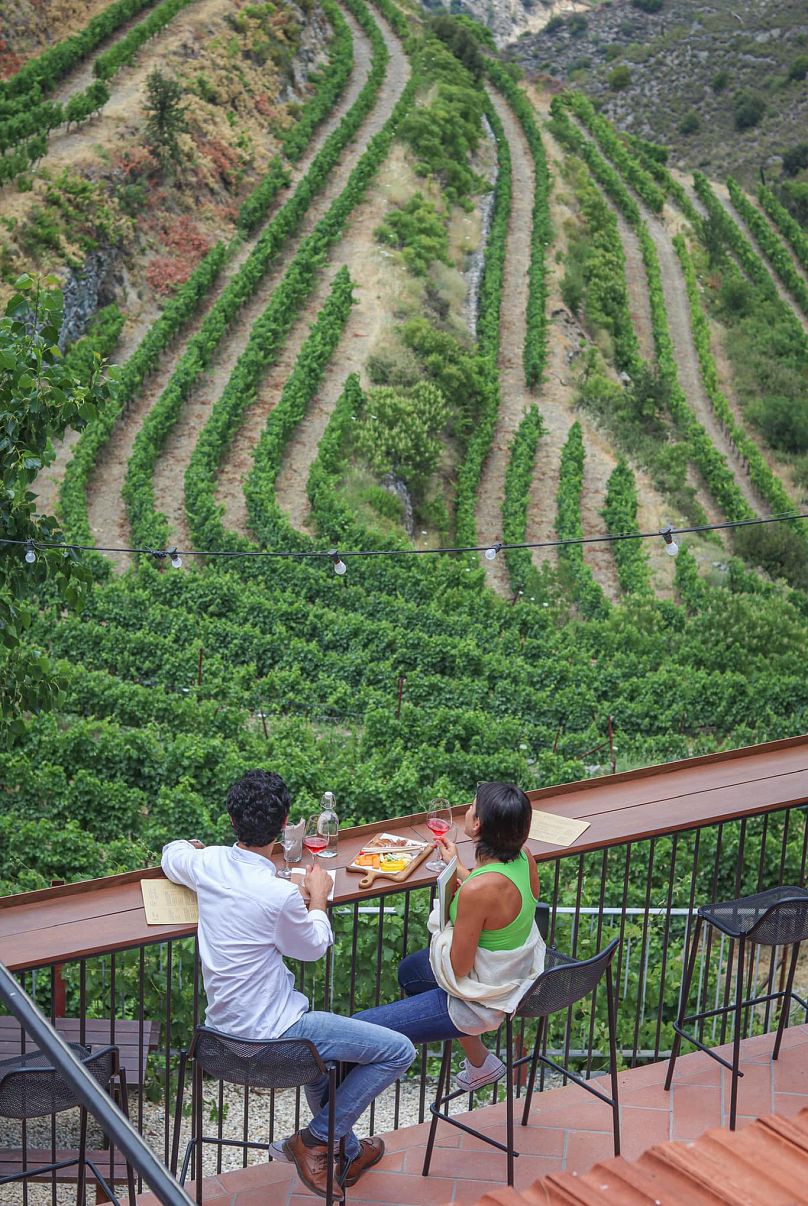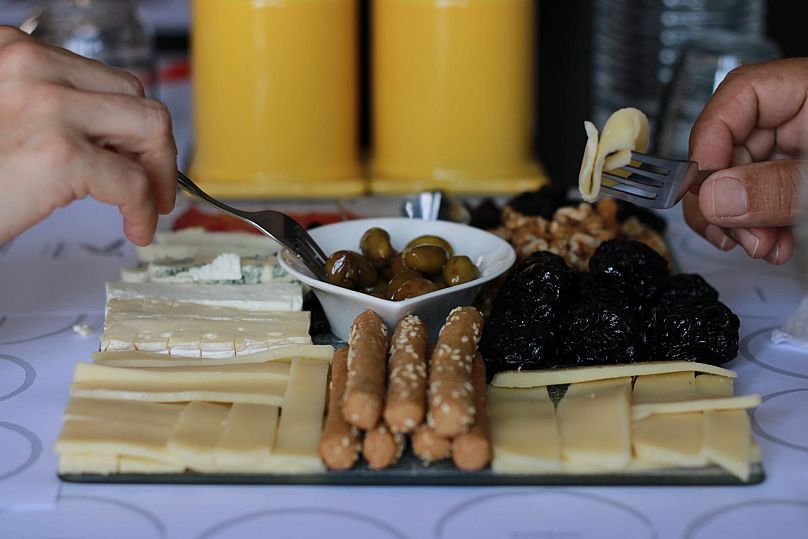With its indigenous grape varieties and historic wine, Cyprus is an emerging wine destination. Here's how its wineries blend tradition and innovation.
Imagine thousands of years of wine-making tradition, picturesque mountains and a tight-knit culture where family comes first, and you’ll start to get the flavour of Cypriot wineries.
 ADVERTISEMENT
ADVERTISEMENT
 ADVERTISEMENT
ADVERTISEMENT
The island country is getting more and more attention for its delicious wines and for good reason.
Cypriot wineries often tell not only the story of wine but of the family behind it. This is what I experienced when I visited Tsiakkas Winery, founded by Kostas and Marina Tsiakkas who wanted to start their own business and leave the white-collar life behind.
What initially began with the production of 500 bottles per year grew into an impressive 200,000 bottles, visitors from all over the world, and a progressive second generation ready to continue the family business.
Here are some good reasons why you should explore wineries during your stay in Cyprus.
What does Cyprus have to offer as a wine destination?
A unique blend of tradition and innovation
Orestis Tsiakkas, the head winemaker of Tsiakkas Winery and the eldest son of Kostas and Marina, studied viticulture (grape cultivation) and enology (winemaking) in France, Germany, and Spain.
“On the one hand we have the tradition from our parents, and on the other hand, we have our academic knowledge and innovative spirit,” he says.
“Marrying tradition and innovation results in something truly unique.”
Indeed, second-generation Cypriot winemakers often promote their wines abroad, experiment with new ideas, and breathe creativity into wine activities in Cyprus.
Indigenous varieties and local drinks
There are different indigenous grape varieties in Cyprus, with Xynisteri (white) and Mavro (red) being the most common ones. These are also used in the making of commandaria, the world’s oldest manufactured wine.
As you taste this sweet, viscous wine, remember how Richard the Lionheart described it: “the wine of kings and the king of wines.”
First gaining popularity during the Crusades in the 12th century, this is no ordinary wine. Today, it is only produced in 14 specific villages in the Troodos Mountains.
If you have a question during or after the wine tasting, ask your local guide. You’ll be surprised how many unexpected stories there are, hidden in the Cypriot vineyards.
Take my experience at Tsiakkas Winery, for example. Besides wine and commandaria, I also had zivania, the traditional Cypriot pomace brandy as part of the tasting. Later on, when I asked Orestis if producing zivania has always been the plan, he shared a fun anecdote.
Apparently, his dad invented this zivania by mistake. He forgot it in a barrel and only remembered to check it five years later. “Really amazing,” in Orestis’s own words.
The highest vineyards in Europe
Home to Europe’s highest vineyards at more than 1,300 metres, Cypriot wineries are not short of breathtaking views. And the best part is - you won’t have to wait until you get to the winery to enjoy the views.
As you make your way up the curvy roads, look outside to spot vines, vibrant flowers, and quaint village houses with towering mountains in the backdrop.
Altitude also plays a role in shaping the nature of Cypriot wines. Since they are closer to the sun, the grapes get more UV radiation which affects their structure. High-altitude wineries also experience very hot days and cold nights, making the maturation process smoother.
A budget-friendly experience
Costs vary by winery, but generally €12 can get you a winery tour and a tasting.
After the tour, elevate your experience by ordering a Cypriot-style snack platter with halloumi, green olives, and cheese.
Where are the best Cypriot wineries and how to get there?
If you’re staying near Paphos or Limassol, you will be less than an hour away from some great wineries.
The commandaria wine route is near Troodos Mountain, connecting the 14 winemaking villages. Along the way, you will find the Commandaria Museum and Revecca winery, specialising in the island’s beloved dessert wine.
Not far from the villages in the Limassol region are Tsiakkas, Vlassides, and Zambartas wineries. Located on the west, Paphos also has renowned wineries such as Vasilikon, Fikardos, Ezousa, and Vouni Panayia.
The best way to get to the wineries is by renting a car. It’s important to book in advance, especially during summertime when a lot of tourists visit Cyprus.
Some wineries let you book online while others require a call. Most are closed on Sundays, so it would be best to plan a wine tasting for weekdays or Saturdays.
When is the best time to visit Cyprus for wine tasting?
April to June is considered the best time as the wines bloom and nature awakens.
That said, visiting wineries is worth it throughout the year. Different seasons mean different sceneries and more opportunities to make the most of what Cypriot wine has to offer.
In winter, the wines are dry with no leaves. Yet the landscape is at its greenest, forming a spectacular contrast. The sweet commandaria will surely warm you up if you choose to go at this time of year.
In summer, the land turns yellow and arid due to the notoriously warm weather. Grab a light Xynisteri that will get you energised amid the dry Mediterranean summers.













